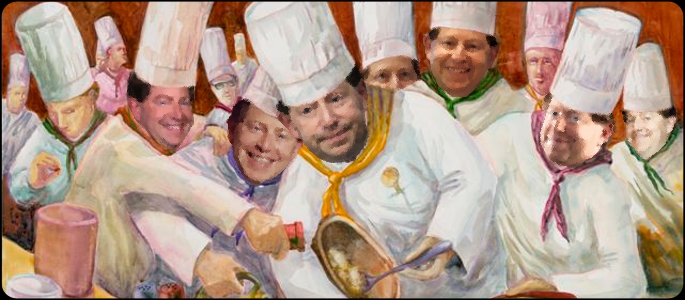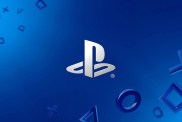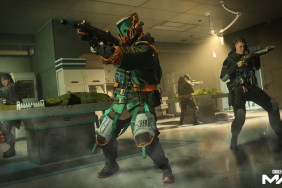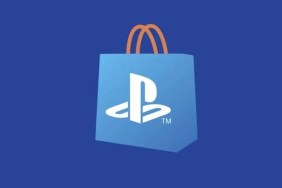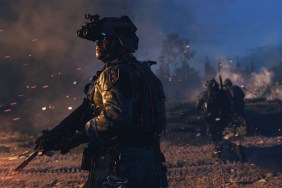Editor’s Note: The following is a community post by PSLS reader Jay Cochran, who explains how Call of Duty went from a great shooter series to shameless cash cow.
What happened to Call of Duty? Why is it that this franchise that used to draw us in with great first-person shooter action has now become a monotonous money-machine?
We all have our memories of playing for hours on end, getting that elusive killstreak, or maybe obtaining the weapon to bring you to the “next level” . We were praising the games that unarguably changed the face of First Person Shooters and the gaming industry in general. Call of Duty, Call of Duty 3, Call of Duty 4, then Modern Warfare 2. Activision churned out hit after hit, and gamers (myself included) ate it up. Those games were GOOD GAMES. Games that were universally acclaimed. But unbeknownst to us, there was a monster waiting behind the curtain.
He started to be revealed in January of 2008, 2 months after the release of Call of Duty 4: Modern Warfare. The game had already sold 7 million copies in those short three months, making it the best-selling game of ’07. Keep in mind that it beat out games that had an 11 month head start to sell copies. It was a hot topic; the sales were incredible. The monster was curious.
As the monster thought, Treyarch handled the next Call of Duty release: World at War, which received a notable amount of success. But the monster didn’t notice; he had an idea.
Development on a sequel to Modern Warfare started. On March 2009, the highly anticipated trailer for the newly named Call of Duty: Modern Warfare 2 was revealed. Rumors and excitement flooded the gaming community. MW2 would become the most-preordered game in Infinity Ward’s history before the end of the year. The game hadn’t even released yet, and the hype was staggering. When the actual game did release on November 2009, it sold more than half of the copies that Modern Warfare one sold in total…overnight. Activision wasn’t one-arming, though. They had a partnership with Monster Energy, a day one comic book, a set of Modern Warfare 2 branded controllers, and a nice controversial level to hype the other demographics up. It worked. In four months, the game had sold over 10 million copies, easily beating the original. The monster was hungry now.
Small voices in the community gave Modern Warfare 2 a minor criticism. “…Infinity Ward repeats a lot of tricks from the first game. (IGN UK)” It was a small complaint to be sure, but one that wouldn’t be repeated later…right?
The monster saw potential. Solid sales, firm fanbase. How could this work to his advantage? Then his idea came: certainly one new Call of Duty annually couldn’t hurt, if only to test the consumer waters. It had been released annually before, but this would be a real attempt. It was decided. The already forgotten Treyarch would take the reins for the first truly annual release.
Activision led an eager fanbase through 2010 with trailers and a wave of hype. When Call of Duty: Black Ops finally launched, it sold 5.7 million units overnight. Surpassing even the ridiculously famous MW2‘s overnight in a flash.
I look back at this exact moment and think. On Activsion’s side, we have a new game that has practically already beat MW2. On the consumers’ side we have…
“A game which feels more like an update than a real sequel (Edge Magazine)” The annual release was already starting to show a sign of wear, even after just a short year. But the monster wasn’t stopping, no. The sales spoke louder than the critics, and the behemoth plowed on. An ad campaign for Modern Warfare 3 started only 6 months after the release of Black Ops, adored by fans, but already forgotten by the beast.
MW3 sold 6.5 million copies (now a given) overnight with an estimated total of $400 million dollars in Activision’s pocket, and another release already planned. “The fun you have is familiar (Gamespot)”, wasn’t stopping the Call of Duty train.
MW3 is already slipping into memory as the gaming world is abuzz with the debut trailer of this year’s Black Ops 2. Does it ever stop?
No, the question is: “does it ever change?” I’m astounded at the sales, the units sold, and the hype, but I’m not astounded at the game itself anymore. And isn’t that what matters most? I hold by the belief that an independent game made from money literally from the dev’s pocket can provide a deeper experience than a triple-A title. It’s not about if the games look or sound good: it’s about if they are fun. It’s about if the customer is getting what they want. The sales say they are, but I think otherwise. I see on a public level a growing distrust of the franchise and, on a private level, I see the loss of a great series of games for a cheap business model. A cash-in. No game should be that. When will you change, Activision?
If you enjoyed Jay Cochran’s post, be sure to vote for it to win the community writer award once all the entrants are published.
